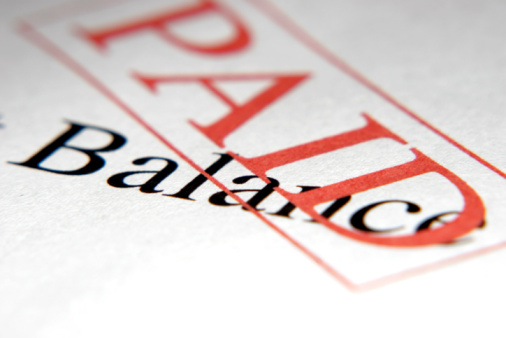<p style="text-align: justify;">While getting paid immediately upon completion of services is the most ideal scenario, many industries simply do not operate in this manner. Instead, customers are able to purchase goods and services, and not have to pay for at least 30 days. For the most part, this is good for business, as it allows customers to make purchases more easily, but waiting for that money can really put a crimp in cash flow. And when clients are paying you late? Forget about it.</p>
<p style="text-align: justify;">Having worked for a collections agency in the past, I was always surprised at how poorly some businesses managed their receivables, at how much money they were waiting on, how long payments had been outstanding and how little they did to try and collect. If past due invoices are causing your business to suffer, here are some tips for getting your receivables back on track.</p>
<h3 style="text-align: justify;"><strong>Send Payment Reminders on Upcoming Invoices</strong></h3>
<p style="text-align: justify;">Sometimes, late payments are an honest oversight, and a nice reminder a few days before an invoice is due to be paid can go a long way in keeping your receivables flowing smoothly. Most accounting programs will allow you to easily set up reminder emails to be sent to the appropriate person. And, if you are not using some sort of software to manage your receivables, consider that the first tip in fixing the problem.</p>
<p style="text-align: justify;"><img class="aligncenter size-full wp-image-12717" alt="Tips For Dealing With Past Due Receivables" src="https://medusamagazine.com/wp-content/uploads/2014/03/Tips-For-Dealing-With-Past-Due-Receivables.jpg" width="506" height="338" /></p>
<h3 style="text-align: justify;"><strong>Establish a Set Process for Handling Past Due Payments</strong></h3>
<p style="text-align: justify;">One thing I noticed most when dealing with my collection clients was the haphazard randomness of dealing with late payments. Any sort of established procedure was completely lacking. This is a surefire recipe for disaster when it comes to receivables. You must establish a process for dealing with past due invoices that is applied each and every time one pops up. There is no one best system and it is about establishing what you think will work best for you and your business. It might involve an email 24 hours past, followed by a phone call at three days late, for example. You must decide at what point you will give up in-house efforts and move to a third-party, like a lawyer or collection agency.</p>
<h3 style="text-align: justify;"><strong>Enhancing Effectiveness of Collection Calls</strong></h3>
<p style="text-align: justify;">Getting on the phone may be necessary at some point in the process; some people may prefer this as the first contact once an invoice is late. Either way, you want to make these calls as effective as possible. This can be difficult for many because of a fear of making a customer angry or the general uncomfortable feelings that tend to arise around anything that involves money. There is no need to get all nasty and stern, but you must portray confidence and a seriousness about getting the issue resolved. First and foremost, get all the information you need ready before you make the call—this will keep you in control. Don’t distract yourself by fiddling with items on your desk or browsing your email; smile as you talk—it will come through on the other end. Be willing to work with clients to get the issue resolved. Be willing to work with clients to get the issue resolved. The call should always end with a specific action to be taken by your client, whether it be paying the bill in full or establishing the first payment of an installment agreement.</p>
<h3 style="text-align: justify;"><strong>Dealing with Cash Flow Problems</strong></h3>
<p style="text-align: justify;">While you work on straightening out your receivables issues, there are ways you can get the money you need sooner. There are many small business financing options that allow for funding of purchase orders, or purchasing of receivables. Evaluate your current practices to see how you can better improve your cash flow, such as requesting different payment terms from vendors or paying bills closer to their due dates.</p>

Tips For Dealing With Past Due Receivables
